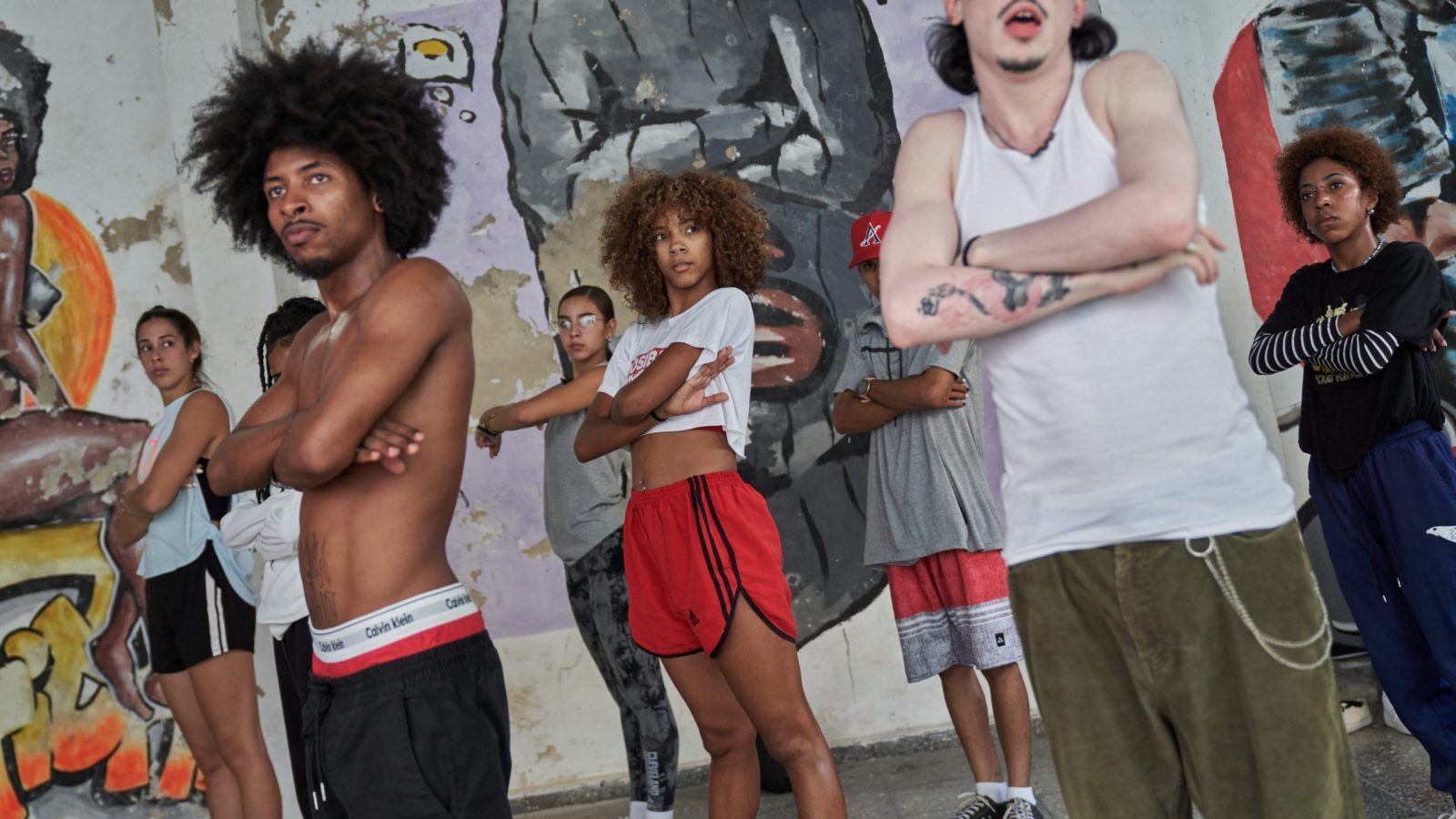In late December, a half-dozen members of the Cuban dance troupe Los Datway moved and danced to a reggaeton song in a colonial tenement in central Havana, an iPhone pointed at them as they rehearsed their choreography. Since Los Datway posted a video paying tribute to Argentina after the South American nation won the World Cup in 2022, the group’s Instagram account has amassed more than 40,000 followers and attracted international coverage from outlets including Mexico’s. The Day and the Franco-Congolese site Africanews.
While the attention has translated into advertising deals with local stores and choreography gigs with other artists, Los Datway have struggled to make money directly from digital platforms while in Cuba, where internet connectivity is the slowest in the world. Online payment services like PayPal and Stripe are banned in the country as part of the U.S. trade embargo, and Instagram and YouTube monetization features are unavailable to local creators.


Los Datway was born in 2016 when Darien Lopez, a backup dancer for the popular Cuban reggaeton duo Yomil y El Dany, recruited two friends to practice moves in the neighborhood. “I had social media accounts, but I couldn’t use them because I didn’t have a phone,” said Lopez, who goes by the name Chaiky. Rest of the world. Instead, he used a friend’s phone to start posting photos and videos of his dance routines online.

“Sometimes an entire day goes by and we can’t post our content.”
Darien “Chaiky” Lopez • Dancer of Los Datway

Lopez would need an entire night and a trip to the center of Havana, where the chances of getting a clear signal are greater, to upload a video. Even then, it can happen that “a whole day goes by and the video is not published,” he added.

After winning a dance challenge from Dominican singer Ozuna and Cuban rapper Ovi in 2021, Los Datway began adding more members to their group, which now consists of 18 dancers and four producers. But there is high turnover. “Some of our dancers are no longer in Cuba,” Lopez said. With 117,000 followers of her own on Instagram, Lopez has partnered with local clothing stores to promote their clothes in her videos.



Because online payments from U.S. companies are not available in Cuba, members of Los Datway cannot pay to promote their Instagram account from the island. Instead, they focus on improving the quality of their videos to increase their visibility abroad. “It’s a little bit harder for us to access the newer phones,” said Christian Anderson Delis Guerra, a 23-year-old dancer for Los Datway. Rest of the world.
Apple products are sold and resold unofficially on the island, but acquiring, operating and maintaining them can be a challenge. Basic tools to repair phone screens require an import permit, downloading apps or software updates is complicated because Cuban IP addresses are blocked, and setting up a new Apple ID with two-factor verification requires a non-Cuban phone number.

Monetizing the platforms is also a challenge. In most of the world, YouTube pays creators about $0.018 per ad view when they reach 1,000 followers and join the platform’s partner program, according to Influencer Marketing Hub, a Copenhagen-based company that specializes in research on social media and the influencer marketing industry. But those monetization tools are disabled in Cuba.

In order for Los Datway and other artists on the island to make money from their content, they need someone living abroad to provide a foreign address to the platform, receive payment and send it back to Cuba. “It’s complicated to actually receive the money,” Zamir Muñoz Hernández, a creator with thousands of views on YouTube, told the BBC. Rest of the world.

“It is difficult to actually receive the money.”
Zamir Munoz Hernandez • online creator
The challenges for artists on the island go beyond monetization. Los Datway dancers have to download songs onto their phones to avoid interruptions while practicing their routines. But purchasing songs — or any digital product — is a hassle, as digital payment systems like Stripe don’t work in Cuba.

If dancers want to buy a song on Spotify or YouTube, Cubans cannot afford it, Antonio Ramírez Romero, a ToonAi DJ and collaborator of Los Datway, told the BBC. Rest of the worldLike many others in the country, Los Datway dancers stream and download music through tools like Telegram links, where they find pirated versions of songs, or Snaptube, a China-based app that extracts music files from YouTube videos and allows users to keep the audio files on their phones.

To avoid copyright restrictions, Los Datway dancers use remixed songs. “We have to make our own remixes or special editions so Instagram doesn’t take down our songs,” Ramírez Romero said. Rest of the worldHe said the platform blocks videos that violate geo-restrictions, so ToonAi is meticulous.


A Meta spokesman did not respond to questions from Rest of the world. Instead, they sent a link to an Instagram page that lays out the terms of use for the platform’s licensed music library. “Meta is obligated to comply with our agreements with the rights holders of the music that is available in our licensed music library,” it states. “Licensed music may also not be available in certain countries or regions.”

Los Datway’s rise to fame has been slow. Its members believe that if social media lifted restrictions for people in Cuba, their popularity would explode. “One of our latest videos has more than 272,000 views. If Instagram’s features worked well in Cuba, we could easily have 500,000,” Lopez said. Rest of the world.




